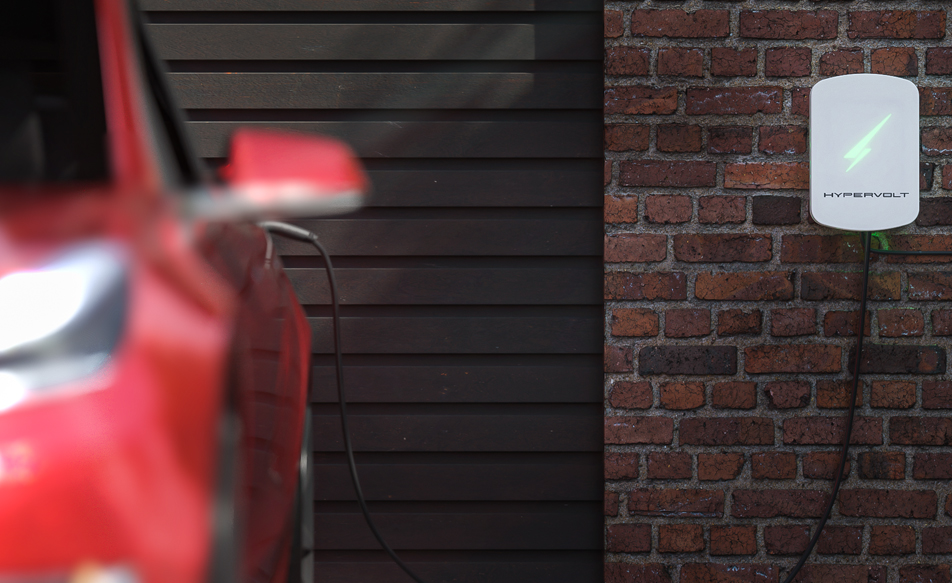
Electric Vehicle Charging Points
Discover the essentials of electrical vehicle charge points, their different types, and charging speeds.
Venture Electrical are proud to be OZEV (office of zero emissions) accredited installers of EV charge points. This means that we have undergone rigorous training and assessment, demonstrating our competence and knowledge in the installation of all types of EV charging stations
Contact us

Discover the essentials of electrical vehicle charge points, their different types, and charging speeds.
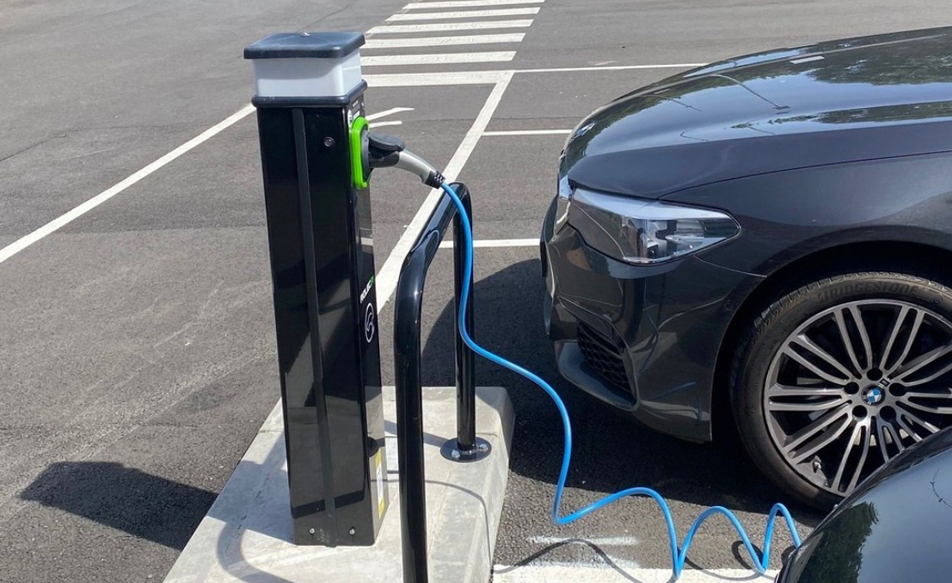
The demand for certified professionals to install and maintain EV charging stations is increasing rapidly.
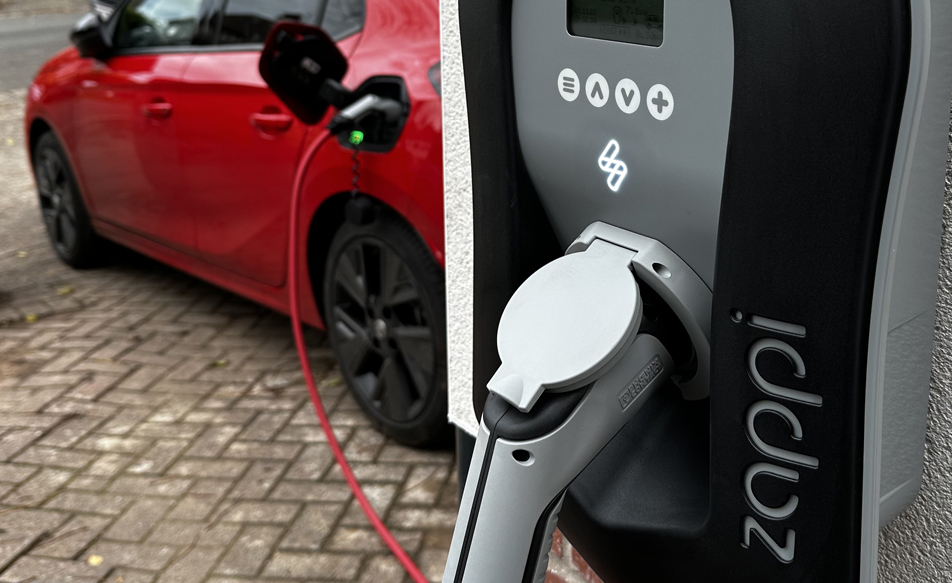
The shift towards electric cars has created a need for efficient and reliable charging options that can be used at home.

Do you own an electric vehicle? If so, you know how important it is to have access to reliable charge points for your vehicle.
The installation process for a domestic EV charge point typically involves an assessment of the home’s wiring by a qualified electrician. Once installed, an EV owner can simply plug their car into the charge point using a cable provided with the vehicle and begin charging. Depending on the power rating of the charger and size of its battery, most EVs will take between two and eight hours to fully recharge from empty.
Charge points also offer safety features like surge protection, grounding protection and temperature monitoring to ensure that cars are charged safely at all times. The latest models even come with remote control capabilities, allowing users to monitor their charging progress from anywhere in the world via smartphone app or web browser.
Installing a domestic electric vehicle charge point has multiple benefits for individuals, families, and businesses. It can save money on fuel costs, reduce environmental pollution, and provide a convenient way to charge an electric vehicle from home.
The most obvious benefit of installing a domestic electric vehicle charge point is that it saves money on fuel costs. Electric vehicles are more efficient than petrol or diesel cars and require much less maintenance. This ultimately means that owners of electric vehicles have lower running costs over time. Additionally, some governments offer tax incentives and discounts when purchasing an electric car or installing a domestic charging station.
Another major benefit of installing a domestic electric vehicle charge point is that it reduces the amount of pollution caused by petrol or diesel cars. Electric cars emit far fewer exhaust emissions than traditional cars and don't produce any noise pollution either. By using one of these charging points, electricity is supplied directly to the car’s battery without any emissions produced whatsoever. This makes them much better for the environment than traditional fossil fuels.
Finally, having a domestic electric vehicle charge point also provides convenience to drivers who own an electric car. Unlike petrol or diesel cars which must be refueled at gas stations, electric cars can be charged in the comfort of one's own home or workplace with ease. Furthermore, many public places such as shopping centers now have charging facilities installed so that those with electric vehicles can easily stay topped up on their journeys too.
Domestic electric vehicle charge points provide multiple benefits for users who wish to invest in this technology including savings on fuel costs, reducing environmental pollution and providing convenience when charging an EV battery from home or elsewhere in public areas.
Anyone who wishes to become an installer of domestic electric vehicle charge points must meet specific requirements. First, they must have a valid Electrical Installer's Certificate or a recognised equivalent qualification. This is to ensure that the installer has the knowledge and experience needed to install the charge point safely and correctly.
Second, they must be able to prove that they have adequate public liability insurance. This is to protect both the customer and the installer from any potential accidents or mishaps that might occur during the installation process.
Finally, all prospective installers must also demonstrate their competence in installing domestic electric vehicle charge points by passing an approved assessment. This assessment will evaluate their ability to safely and accurately install domestic electric vehicle charge points in accordance with current safety standards and regulations. Once these requirements have been met, installers can then begin offering their services to customers.
Electric vehicle chargers come in a variety of types and choosing the right one for your needs can be a tricky endeavor. There are two main categories of electric vehicle chargers: level 1 and level 2.
Level 1 chargers use a standard 120-volt outlet to charge an electric car at a rate of about 4 miles per hour. This type of charger is ideal for those who only need to charge their car occasionally or don't have access to higher powered charging options. It's also relatively inexpensive, so it could be a great option if you're on a tight budget.
Level 2 chargers, on the other hand, use 240-volt outlets to charge an electric car at up to 25 miles per hour. Level 2 chargers require professional installation and are more expensive than Level 1 chargers, but they provide much faster charging times and are well worth the investment if you plan on using your electric vehicle frequently.
Whether you opt for Level 1 or Level 2 charging, having an experienced domestic electric vehicle charge point installer is essential for ensuring that your charger is installed correctly and safely. Professional installers will also be able to help you choose the right type of charger for your needs and ensure that it meets all safety standards.
Finding qualified installers for domestic electric vehicle charge points is an important part of making sure that the installation process goes smoothly. It's essential to ensure that the work is carried out to a high standard and any potential future issues are avoided.
The first step in finding an installer is to check whether they have the necessary qualifications and experience. A good place to start is by looking at trade bodies such as NICEIC or ECA who offer certification programmes for electricians working on EV charge points, which can give you peace of mind that your installation will be done correctly. It’s also worth researching online reviews and checking customer feedback on social media to get an idea of the level of service provided by a particular installer.
It's also important to consider factors such as cost, availability and customer service when selecting an installer. Make sure you get quotes from a few different companies so you can compare prices and find the best deal for your needs. You should always ask about their after-sales service too - this could include warranties or call-out services if something does go wrong with the installation later down the line.
By taking these steps to ensure that you choose a qualified and experienced installer, you can rest assured that your EV charge point will be installed safely and securely, giving you peace of mind for years to come.
Once you’ve identified qualified installers for your domestic electric vehicle charge point, it's important to consider the cost of installation. Installing a reliable EV charging station can be costly. Depending on the type of charger and installation requirements, total costs can range from several hundred dollars to thousands. The cost also depends on whether you are having an electrician or a qualified installer do the job.
When selecting an installer, make sure that they provide clear and accurate quotes for their services. Ask them about any additional fees that may be charged, such as travel expenses or materials costs. Additionally, be sure to ask if they offer warranties on their work and the parts they supply. This will ensure that any issues with the installation are covered in case something goes wrong later on.
It is also helpful to find out how long it will take to complete the installation so you can plan accordingly. Consult with your installer before scheduling any appointments so that you know what to expect when it comes time for your EV charging station to be installed. Once all of these factors have been taken into consideration, you can make an informed decision about which installer is best suited for your needs.
Before installing an electric vehicle charge point, it's important to take safety precautions. This will help keep both the installer and the customer safe during the installation process.
First, make sure that you read any instructions provided by the manufacturer of the charge point before beginning installation. These instructions may include information about wiring methods, proper grounding techniques, and other important safety considerations for working with electricity. It's also a good idea to research local codes and regulations related to the specific type of device you're installing, so that you can ensure compliance with local laws.
In addition to reading instructions and researching regulations, always make sure that you have all the necessary tools and protective equipment needed for the job before starting installation. This includes items such as gloves, goggles, face masks, non-conductive ladders or scaffolding, and other specialized tools for working with electricity. Make sure that your work area is clear of any flammable materials or objects that could be damaged by sparks created during installation.
Before plugging in any electrical devices or wiring them up to power sources, always double check that they are properly connected according to manufacturer's instructions and local laws. It is also important to test all connections before turning on power sources in order to prevent potential hazards from occurring while working on the project.
Installing a domestic electric vehicle charge point is a great way to get access to reliable power for your vehicle. However, proper maintenance and troubleshooting are still necessary to keep the system running smoothly. Here are some tips for keeping your installation in good working order:
First, check all connections frequently for signs of wear or damage. Be sure to replace any worn parts as soon as possible, since this can prevent future issues. Also, make sure that all wiring is secured tightly and not crossed or otherwise damaged. This will help ensure safe operation of the system.
Second, it's important to regularly inspect the charge point itself for any loose screws or other problems that may cause an issue with its operation. If you notice anything out of the ordinary, be sure to contact an electrician right away. In addition, if the charger seems to be running inefficiently or there is any flickering of lights when charging, it's a good idea to have it inspected by a professional service technician.
Finally, it's always a good idea to keep track of how much power is being used and how long your battery has been charging. This information can help you determine if there are any potential problems with your charging system and help you identify what steps need to be taken in order to fix them quickly and effectively. By taking care of these regular maintenance tasks, you'll be able to maintain your charge point for many years without having any major issues with it.
Governments around the world have put in place incentives to encourage citizens and businesses to install electric vehicle charge points. These incentives are meant to reduce emissions from gasoline-powered vehicles, as well as promote the adoption of electric vehicles. In the United States, for example, individuals can qualify for a federal tax credit of up to $7,500 when they purchase an electric vehicle. Additionally, states like Oregon offer cash rebates for installing charging stations in homes or businesses.
Businesses too can benefit from government incentives when they install electric vehicle charging stations. In some countries, such as the United Kingdom, businesses are eligible for grants and other types of support in order to install charge points. This helps them save money on installation costs and lowers their energy bills in the long run.
In addition to these financial incentives, governments also provide advice and guidance on how to properly install charge points so that they meet safety requirements and work effectively. This helps ensure that people who install charge points know exactly what they are doing and don't end up with faulty equipment or unsafe conditions.
Overall, government incentives play an important role in helping people and businesses save money while also reducing emissions from gas-powered vehicles by encouraging them to switch to electric ones or install charging stations at home or at work.
The installation of domestic electric vehicle charge points has a positive effect on the environment. By providing a convenient way to charge EVs, more drivers are encouraged to use them, rather than fuel-powered cars. This reduces carbon dioxide emissions and air pollution in cities and towns, as well as conserving finite resources such as oil and gas.
Furthermore, by using renewable energy sources to power charge points, the environmental impact can be further reduced. Solar energy is becoming increasingly popular for this purpose, reducing reliance on non-renewable sources of energy like coal or gas. Additionally, the installation of electric vehicle charging points helps to foster green economic growth and job creation in areas such as renewable energy engineering or EV servicing.
In summary, the installation of domestic electric vehicle charge points has clear benefits for the environment. It encourages drivers to switch from fuel powered cars to EVs and promotes the use of renewable energy sources for electricity generation. This helps reduce greenhouse gas emissions and air pollution while also stimulating local economies through green job creation.
The process of installing a solar panel system can vary from one project to the next, but generally speaking, it doesn't take too long. Depending on the size and scope of the project, the installation could take anywhere from a few hours to a few days. However, if you're only installing a couple of panels to power your home energy needs, it could be completed in just a matter of hours.
When considering the overall timeline for getting your solar panel system up and running, there are several factors that need to be taken into account. First, you'll have to factor in the time it takes to prepare the site. This includes clearing any obstructions such as trees or debris that may be present on your property. Additionally, permits may need to be acquired in order for you to move forward with the installation process. Once all of this is taken care of, then comes the actual installation itself which can take anywhere from 8-12 hours depending on how large your system is.
Finally, once everything is installed and connected properly, it's important that you set up monitoring equipment so you can keep an eye on your system's performance over time. This will help ensure that your panels are operating at peak efficiency and that you're getting the most out of them. In addition, regular maintenance should also be performed every now and again so that any potential issues can be addressed as soon as possible. All in all, with proper planning and preparation beforehand, installing a solar panel system shouldn't take more than one or two days at most.
Investing in solar power is an increasingly popular decision for homeowners and businesses alike. With the rising cost of energy, more and more people are looking to renewable energy sources as a way to reduce their monthly bills and be better stewards of the environment. But what are some of the long-term benefits that come with investing in solar power?
For starters, installing a solar panel system can provide significant savings over time. Solar panels use the sun’s energy to generate electricity, which means that you no longer have to rely on traditional sources of energy like coal or natural gas. This translates into reduced electricity bills as well as fewer emissions from fossil fuels. Additionally, many utilities offer incentives for those who choose to go solar, such as net metering programs which allow excess energy generated by the panels to be credited back onto your bill.
Another key benefit of investing in solar power is its resilience during extreme weather events like hurricanes and heat waves. Traditional sources of energy can often succumb to these events due to downed power lines or outages caused by high demand on the grid. Solar panels, however, are unaffected by these occurrences since they are powered directly from the sun’s rays, meaning your home or business will stay up and running even when other sources fail.
Solar power also has a number of environmental benefits associated with it. Solar panels do not emit any air pollutants or greenhouse gases while generating electricity and require little maintenance once they’re installed. Moreover, they help reduce our dependence on fossil fuels while providing sustainable energy solutions that can produce clean electricity for decades after installation. This makes them an ideal choice for those looking to make an impact on climate change while saving money in the long run.
Overall, investing in solar power provides numerous advantages both financially and environmentally over traditional energy sources, making it an attractive option for those looking for ways to reduce their carbon footprint while saving money at the same time.
Investing in solar power has become increasingly popular in recent years, and with good reason. The long-term benefits are numerous, from reduced electricity costs to environmental protection. But before making the investment, it's important to consider if there are any restrictions on where solar panel systems can be installed.
The answer depends largely on your location. Generally speaking, most places allow for installation of solar panels on residential properties. However, some local governments may have additional regulations or requirements that must be met before installation can begin. In some cases, homeowners may need to obtain a permit or approval from their city hall or local planning commission before they get started.
In addition to local regulations and requirements, you should also be aware of potential restrictions imposed by homeowners' associations (HOAs). HOAs often have specific rules and guidelines that must be followed when installing solar systems on property within the association's boundaries. If you're considering investing in solar energy within an HOA community, it is best to review the HOA's rules and regulations beforehand to ensure all necessary steps are taken prior to installation.
It is also important to know that not all rooftops are suitable for mounting solar panels. The roof structure needs to be able to support the weight of the system and provide adequate exposure for optimal energy production. Professional installers can assess whether your roof is suitable for solar panel installation and help identify any potential obstacles that could affect performance or safety during installation.
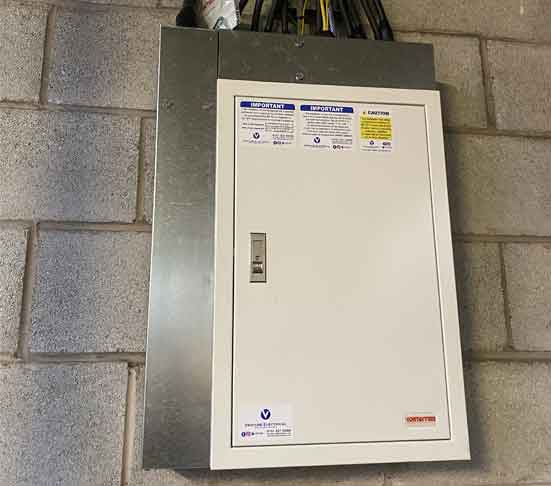
Looking for a reliable electrical service in Liverpool? Look no further than Venture Electrical Ltd! Our team of expert electricians specialize in installing, repairing, and upgrading distribution boards and fuse boxes. We pride ourselves on providing top-quality service at affordable prices. Contact us today for all your electrical needs!
Fuse Box/Consumer Unit Information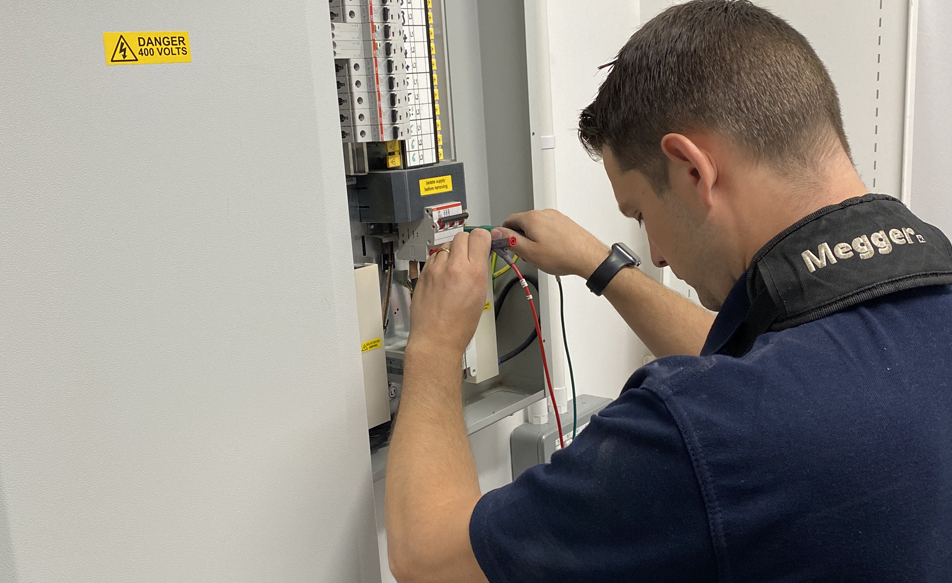
Welcome to our Liverpool Electrical Contractor Service, your one-stop-shop for all your electrical needs. Our team of certified electricians provide top-quality electrical services for residential, commercial, and industrial properties. From installations to repairs, we offer a range of services to keep your property powered up and running smoothly. Contact us today for a free consultation and estimate!
What does an Electrical contractor do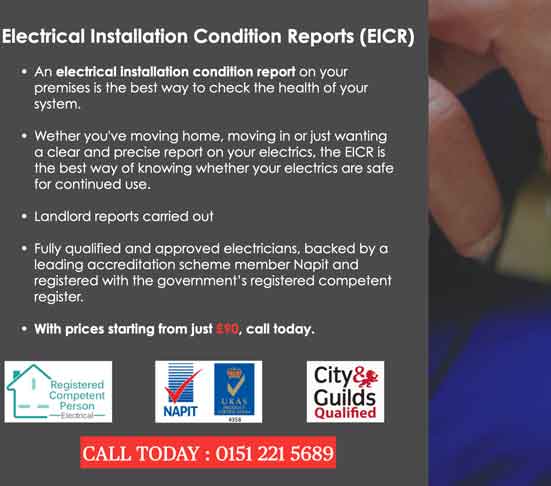
Ensure the safety of your property with our Liverpool Electrical EICR Certificates. Our team of certified electricians conduct thorough inspections of your electrical systems and issue Electrical Installation Condition Reports (EICR) to verify that they are safe and up-to-date with regulations. We provide reliable, efficient, and cost-effective services to keep your property in compliance with industry standards. Contact us today to schedule your inspection!
Electrical Wiring Regulations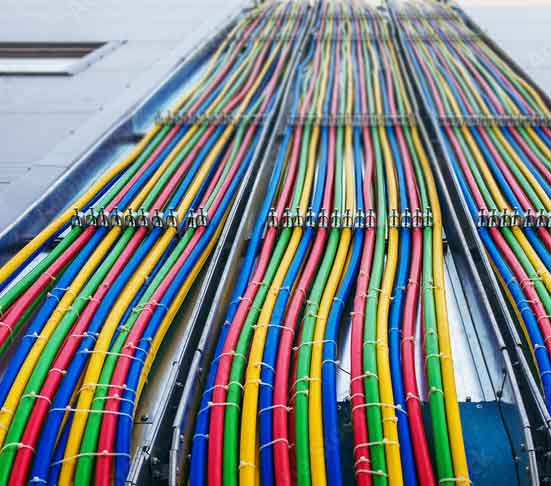
Need electrical wiring services for your home or business? Look no further than our local Domestic and Commercial Electrical Wiring Services. Our team of experienced electricians provide a range of electrical services, from installations to repairs, for both residential and commercial properties. We pride ourselves on delivering top-quality services that meet the highest safety and quality standards. Contact us today to schedule a consultation!
Electrical Wiring Information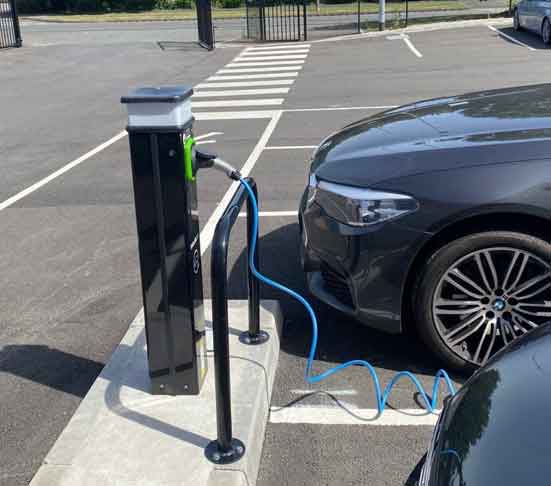
Welcome to our Electric Vehicle Charging Station Services, your go-to destination for all your EV charging needs. Our team of certified electricians specialize in installing and maintaining EV charging stations for both residential and commercial properties. We offer reliable, efficient, and cost-effective services to keep your EV powered up and ready to go. Contact us today to learn more about our services and schedule your installation!
EV Charging Station
Ensure the safety of your electrical appliances with our Electrical Portable Appliance Testing (PAT) service. Our team of certified electricians provide reliable and efficient testing to ensure that your appliances are safe and up-to-date with industry standards. We offer a range of services to both residential and commercial properties, including inspections, testing, and repairs. Contact us today to schedule your PAT service and keep your property safe!
PAT Testing – Venture Electricians Liverpool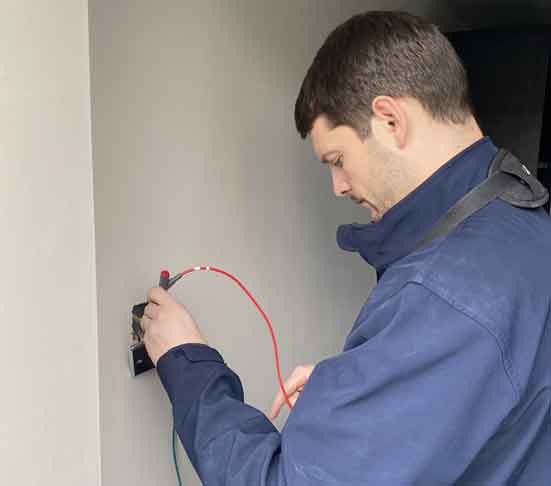
Welcome to our Approved Electrical Fault Finding service, where we pride ourselves on being the go-to source for diagnosing and repairing electrical faults. Our team of certified electricians use the latest equipment and techniques to quickly and accurately identify and fix electrical issues. We offer reliable and efficient services to both residential and commercial properties. Contact us today to schedule your fault finding service and get your property back up and running!
Finding Electrical Faults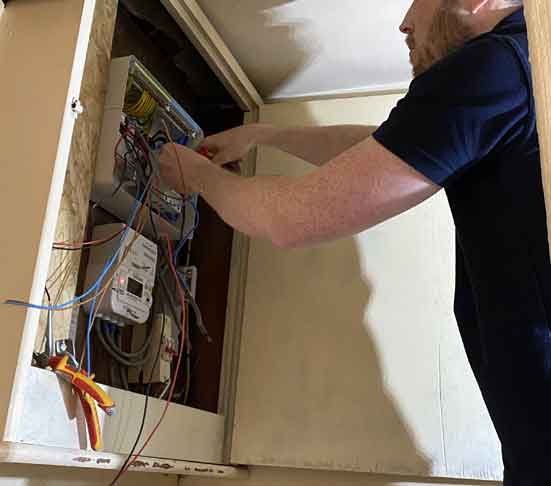
At Venture Electrical Ltd we provide approved electrical rewiring services for homes and businesses. Our team of certified electricians specialize in rewiring properties to ensure the safety and functionality of electrical systems. We offer reliable and efficient services at competitive prices, using only the highest quality materials and techniques. Contact us today to schedule a consultation and keep your property safe and up-to-date with industry standards.
House Rewiring – Renewing Electrical Wiring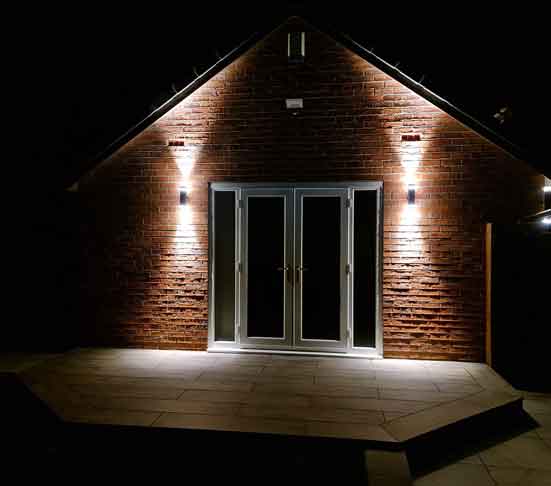
Welcome to Venture Electrical Ltd's Light Fittings and Fixtures Installation And Repair Service. Our team of certified electricians provide reliable and efficient services for installing and repairing all types of light fixtures and fittings for homes and businesses. We use only the highest quality materials and techniques to ensure that your property is well-lit and functional. Contact us today to schedule your installation or repair service and brighten up your space!
Install Light fixtures and Light Fittings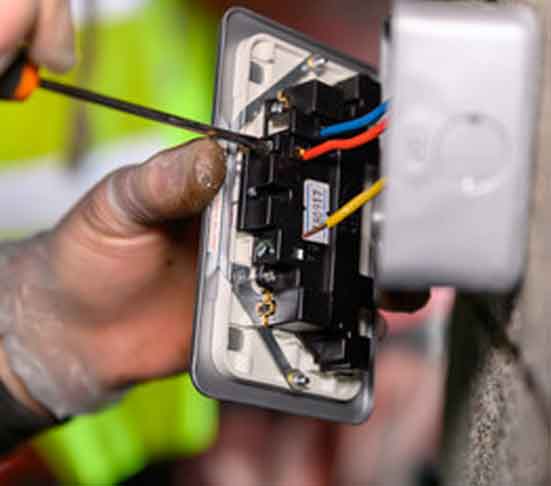
Looking to install or replace outlet sockets and switches in your home or business? Our team of certified electricians provide reliable and efficient services for Installing And Replacing Outlet Sockets and Switches. We offer a range of services to keep your electrical systems up-to-date and functioning properly. Contact us today to schedule your installation or replacement service and keep your property powered up!
Plug Sockets and Light Switches